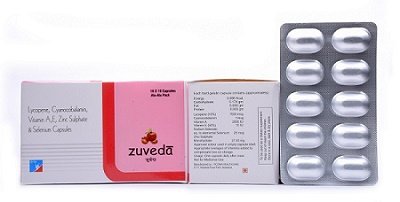Description
Pharmacology
- Pharmacodynamics: – Cyanocobalamin refers to a group of water-soluble vitamins. It has high biological activity. Cyanocobalamin is necessary for normal hematopoiesis (promotes maturation of erythrocytes). Involved in the processes of transmethylation, hydrogen transport, synthesis of methionine, nucleic acids, choline, creatine. Contributes to the accumulation in erythrocytes of compounds containing sulfhydryl groups. Has a beneficial effect on liver function and the nervous system. Activates the coagulation of blood in high doses causes an increase in the activity of thromboplastin and prothrombin.
- Pharmacokinetics: –
- Absorption: – After oral administration Cyanocobalamin absorbed from the gastrointestinal tract.
- Metabolized in the tissues, becoming a co-enzyme form – adenosylcobalamin which is the active form of cyanocobalamin.
- Excreted in bile and urine.
Indications: –
- Energy production
- Management of healthy skin, hair and nails
- Used in cardiovascular diseases
- Pernicious anemia
- Used in kidney stones
- Strengthens the immune system
- Regulates blood pressure
- Production of red blood cells
- Regulates carbohydrate metabolism
- For rheumatoid arthritis and osteoarthritis
- Used in neurodegenerative diseases
- Age- related macular disease ( eye disease)
- Used in diabetes
- Used in Hepatitis C
- Used in pregnancy
- Antioxidant activity
- For digestion
- Used for common cold
- Minimize digestive complaints
- Treat hormone-related infertility problems













